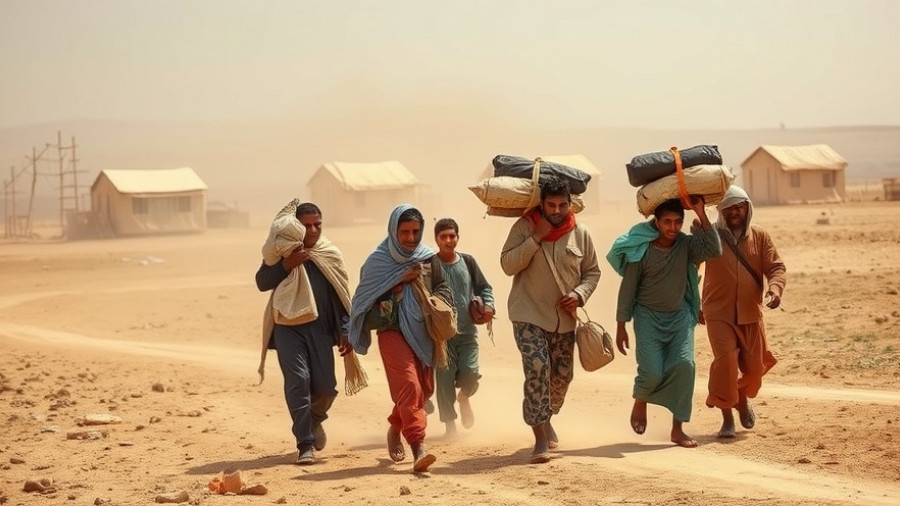
The Tragic Fall of El-Fasher: A City Under Siege
The conflict in Sudan has erupted with devastating consequences, particularly in the city of El-Fasher, where the Rapid Support Forces (RSF) have overrun remaining safe havens, including the last functioning hospital. Eyewitness accounts describe scenes akin to a battlefield; bodies litter streets, and communities are rife with fear and uncertainty. This chilling scenario is not just an isolated incident but reflects a deeper humanitarian crisis that demands global attention.
Understanding the Human Toll: A Closer Look at the Conflict
Since the civil war ignited in 2023, Sudan has seen staggering casualties — conservative estimates place deaths at over 40,000, with millions displaced. In a grim twist, the RSF's recent assaults have specifically escalated violence against non-Arab ethnic groups, echoing the horrors inflicted by the Janjaweed militias during the earlier Darfur genocide. The relentless siege on El-Fasher lasted 18 months, culminating in a humanitarian disaster wherein the last vestiges of medical care were annihilated. The report of 460 lives lost within the confines of the Saudi Maternity Hospital underscores the brutality and hopelessness faced by civilians.
Local Impacts and Global Indifference: Why Should We Care?
For residents of Kansas City, the implications of this crisis may seem distant. However, the principles of human rights transcend borders, calling for empathy and action. Understanding the plight of those suffering in Sudan can start conversations within our communities; we can mobilize resources, advocate for humanitarian aid, and pressure lawmakers to respond to international crises. Every small effort to raise awareness can build a larger response to the suffering faced by those trapped in conflict.
Historical Context: The Roots of the Current Violence
To fully appreciate the complexity of the ongoing conflict, it’s essential to consider Sudan's tumultuous history. The RSF traces its gruesome lineage back to the Janjaweed militias that operated with impunity during the Darfur conflict of the early 2000s. Accused of genocide by the United Nations, such groups have perpetuated cycles of violence under changing guises but with similar methods. The military and RSF, once allies in overthrowing civilian governance, have been at odds since 2023. This power struggle has turned cities into warzones, erasing the lines between combatant and civilian.
Looking Ahead: Future Prospects and Humanitarian Ongoing Needs
The international community's response to the situation in Sudan has often been characterized by alarming apathy. Calls for immediate ceasefires and humanitarian efforts from organizations like WHO and Doctors Without Borders must be met with action, not just rhetoric. As the violence escalates and more humanitarian institutions cease operations due to safety concerns, the cry for help grows louder. Future efforts must focus on safeguarding civilians and restoring humanitarian access. Support for NGOs working on the ground can help maintain critical services as many flee the horrors surrounding them.
How Kansas City Residents Can Help
Aiding international humanitarian efforts may seem daunting, but local actions can have a significant global impact. Hosting community events centered around awareness, fundraising for NGOs providing direct assistance, or educating others about Sudan's plight strengthens solidarity. Kansas City can become a beacon of hope, channeling resources and advocacy towards those who need it most. Actions, whether small or large, contribute to fostering a greater understanding of international crises.
Feeling inspired to make a difference? Have a story to share or want to contact us for more details? Drop us an email at team@kansascitythrive.com
 Add Row
Add Row  Add
Add 




Write A Comment